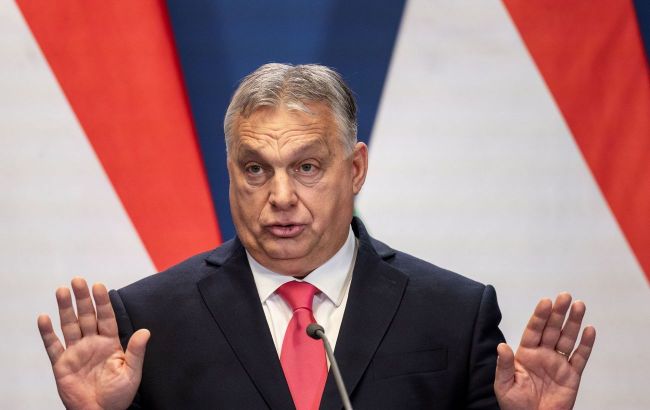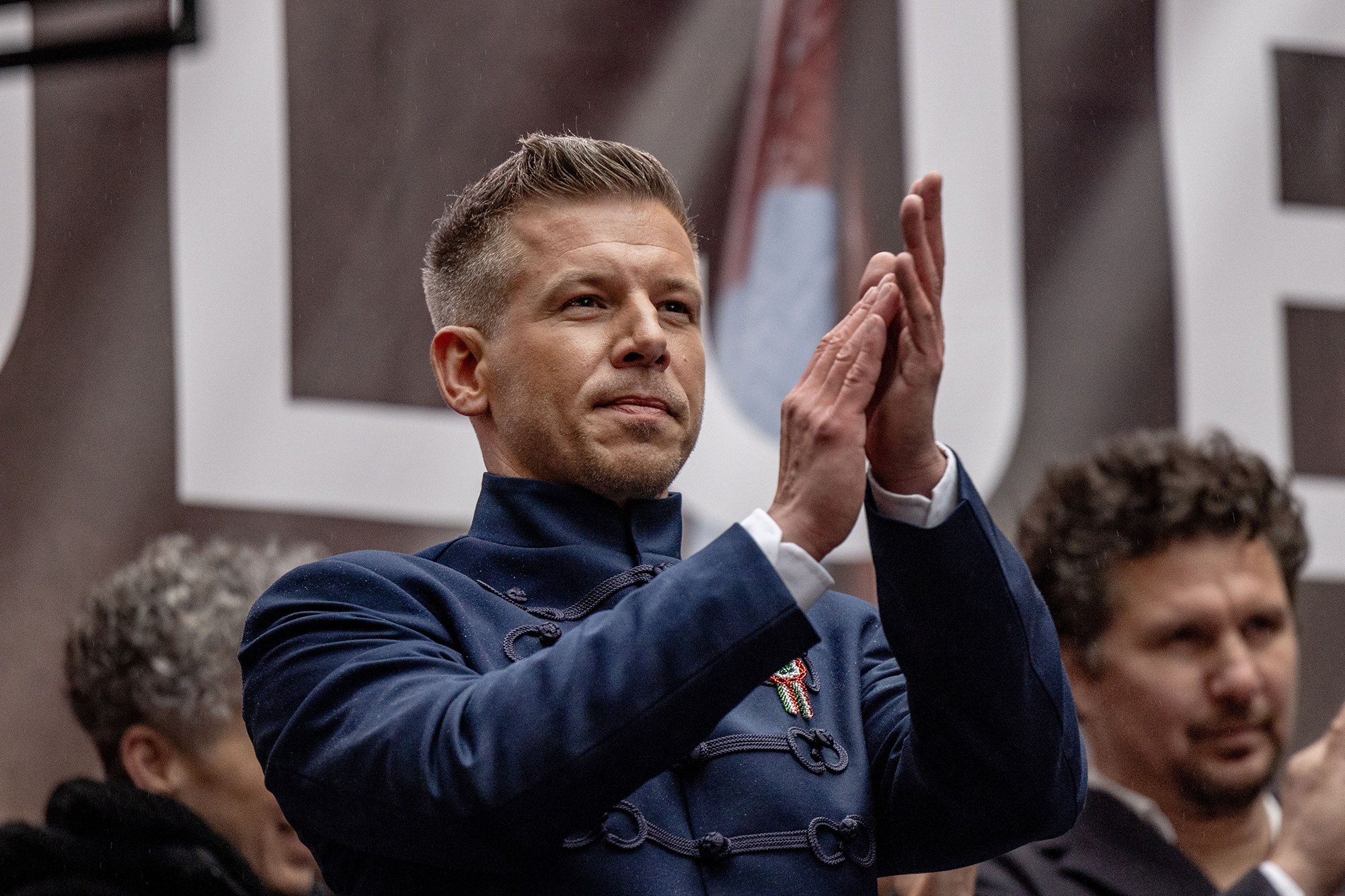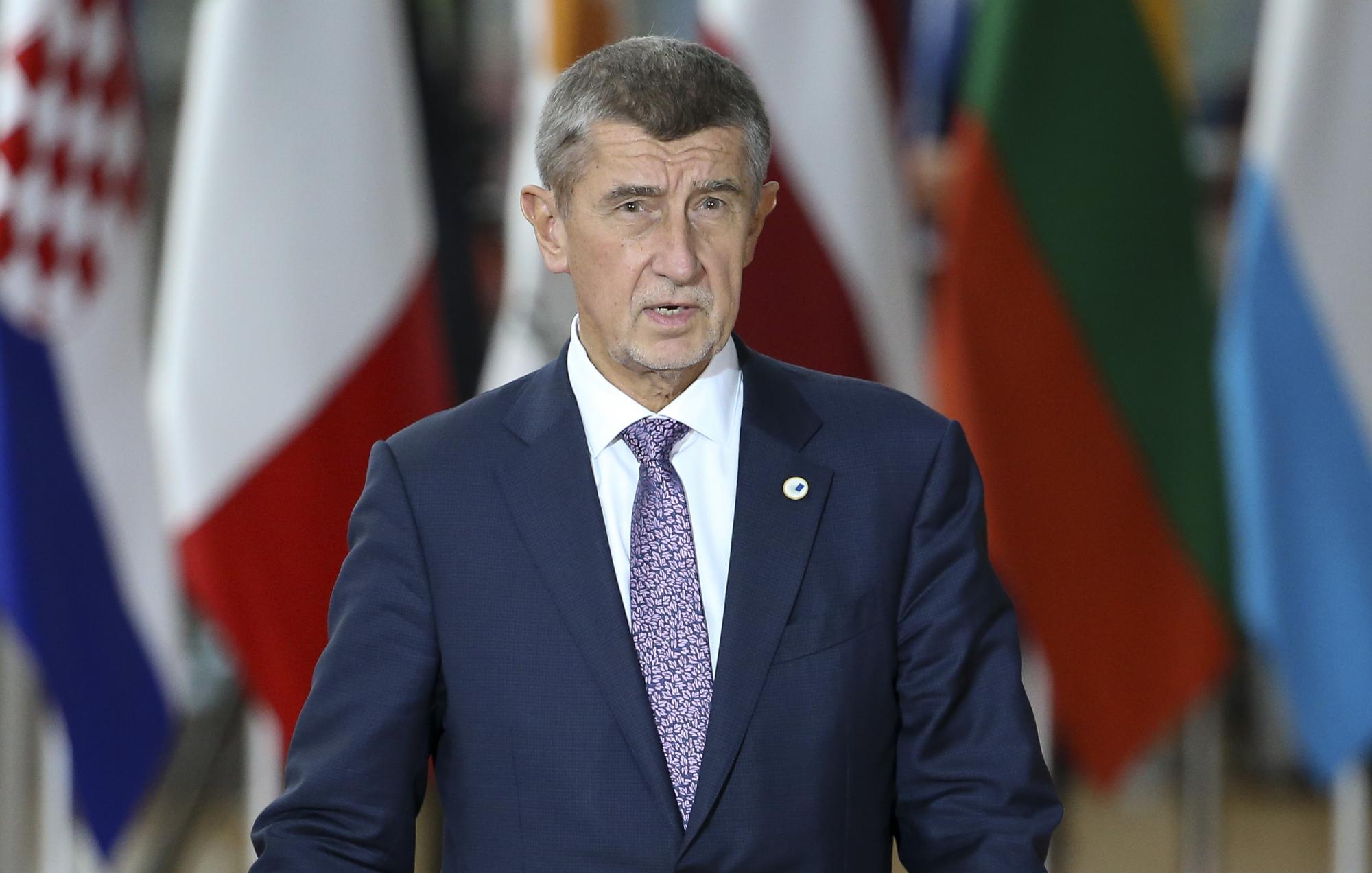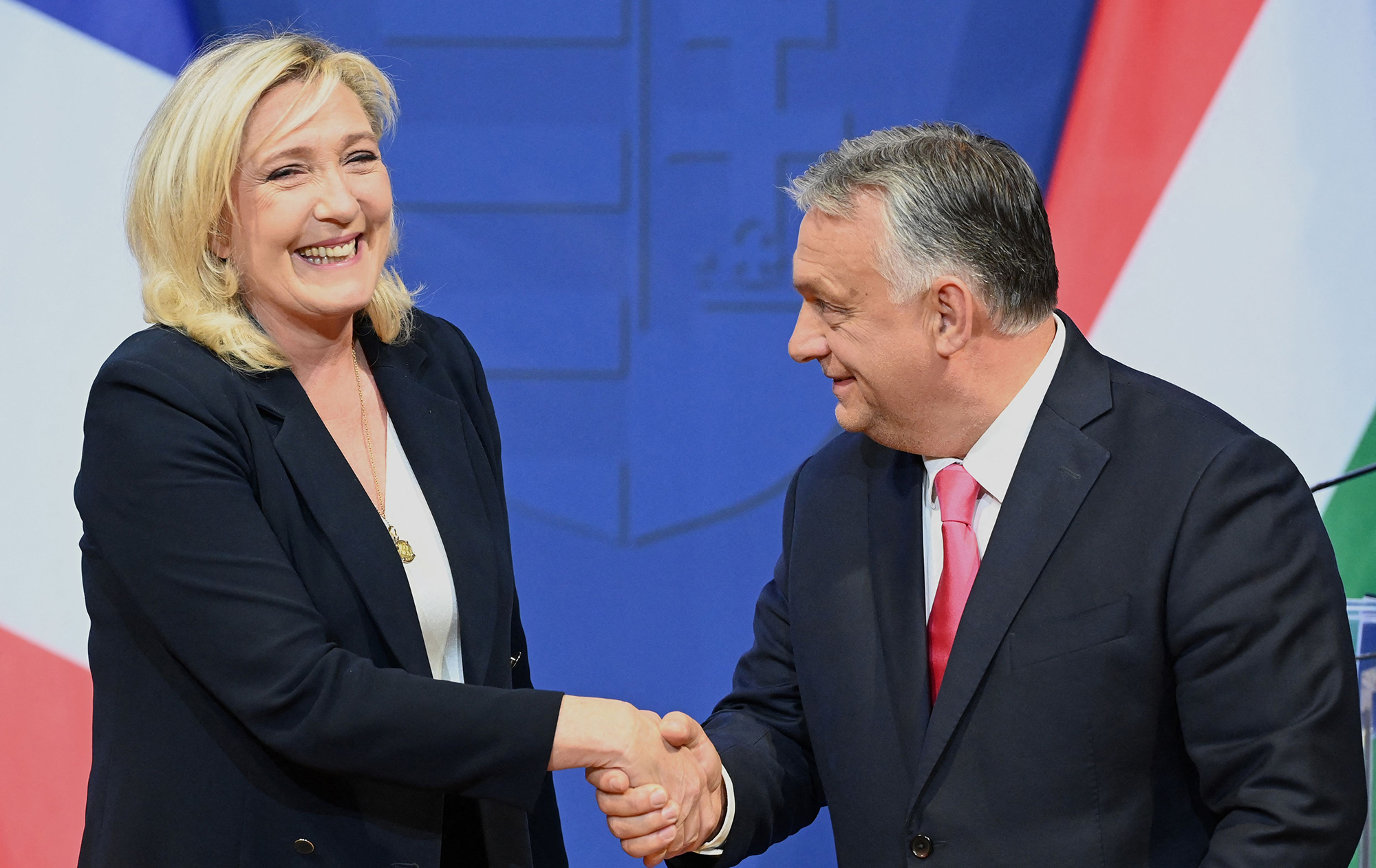Not only Orbán: Where in Europe anti-Ukraine parties may win
 Viktor Orbán (photo: Getty Images)
Viktor Orbán (photo: Getty Images)
In a number of European Union countries, politicians with varying degrees of hostility toward Ukraine may come to power. Which countries are at risk and what the consequences can be - read in the article on RBC-Ukraine.
Key questions:
- Will Orbán manage to stay in power in Hungary?
- Could Czechia shift into the camp of Ukraine’s opponents?
- What risks does political instability in Bulgaria create?
- What consequences for Ukraine could the tension between the President, government, and parliament in France have?
One against twenty-six. That is often what the confrontation within the European Union looks like, especially in the context of Ukraine.
All key EU decisions are made unanimously. Therefore, Hungarian Prime Minister Viktor Orbán regularly frustrates not only the European Commission on internal issues but also sabotages Kyiv’s European integration. This summer, Ukraine felt the problem in full – on June 26, Orbán single-handedly blocked the opening of negotiation clusters on Ukraine’s EU accession.
He is not the only leader in the EU with an anti-Ukrainian stance. In neighboring Slovakia, the government is led by populist Robert Fico, who, while mostly limited to verbal threats, still acts in a more constructive manner.
In Romania, the rise to power of a similar politician was barely avoided – in a heated second-round presidential election, far-right candidate George Simion still lost to pro-European and pro-Ukrainian Nicușor Dan.
Overall, this is part of a broader trend. Across Western Europe and the United States, far-right and far-left populists are steadily gaining votes. One reason is that populists openly discuss issues that mainstream politicians long avoided.
“In Europe, this is about migration, multiculturalism, and so on. Now such parties are picking up these issues. They offer simple solutions, which often don’t work, but they resonate with audiences,” Oleksandr Leonov, Executive Director of the Penta Center for Applied Political Studies, told RBC-Ukraine.
Of course, not all populists are anti-Ukrainian, sometimes the opposite, as with the Sweden Democrats or Brothers of Italy. However, they usually focus on domestic politics and isolating themselves from foreign policy problems, the foremost being Russia’s war against Ukraine. Thus, at a minimum, indirectly, populists can harm Ukraine’s interests.
So far, there are no signs of this trend declining. On the contrary, soon there may be even more Orbán-like figures in power across the EU, as elections are coming up where populists have real chances of victory. Meanwhile, some of the old populists face a challenge: how to stay in power.
Ultimately, a paradoxical situation may arise: the “original” Orbán could be ousted in Hungary, while elsewhere in Europe new “Orbáns” emerge, who will themselves frustrate Kyiv and Brussels.
Orbán - holding on to power
For the first time in many years, the Hungarian prime minister has a real challenger who could defeat him. The Tisza party and its leader Péter Magyar have been leading Orbán’s Fidesz in polls for several months. According to a Republicon survey conducted July 23–29, 43% of voters are ready to support Tisza, while Fidesz has only 34%. Elections, however, are only scheduled for next April, and much can change.
Trying to maintain power, Orbán uses his usual tactics: distributing housing subsidies to state employees, invoking Hungary’s historic greatness, and rallying voters against an external enemy. This time, that enemy is Ukraine and President Volodymyr Zelenskyy personally.
 Péter Magyar (photo: Getty Images)
Péter Magyar (photo: Getty Images)
A full-blown anti-Ukrainian hysteria has been launched in Hungary. To fuel it, Hungarian intelligence even staged the arrest of alleged “Ukrainian spies.” This narrative still resonates with Orbán’s loyalists, but for the first time, a significant share of the public is turning sharply against him.
Orbán is weakened by widespread fatigue with his long rule and Hungary’s bleak economic outlook. Emotional scandals are adding to the discontent. For example, just days ago, independent MP Ákos Hadházy published photos and videos of Orbán’s lavish estate, complete with a private zoo and palm garden, sparking a major public outcry.
Meanwhile, Orbán’s challenger, Péter Magyar, is not sitting idle. He is running an intensive door-to-door campaign, traveling through Hungary’s small towns, and also courting Hungarian minorities abroad who once looked to Orbán for leadership.
To cling to power, Orbán may resort to several scenarios, Serhii Herasymchuk, Deputy executive director of the Ukrainian Prism foreign policy council, told RBC-Ukraine.
The first is to further inflame tensions around Ukraine and the European Union. Russia has already joined the effort: on August 13, Russia’s Foreign Intelligence Service accused the European Commission of plotting to “change the regime in Budapest” and bring Péter Magyar to power. The next day, Hungarian Foreign Minister Péter Szijjártó echoed Moscow’s allegations, though he admitted the published text contained “nothing new.”
In response, Magyar warned that after 34 years, “Russia once again wants to interfere in Hungarian politics,” recalling the Soviet troop withdrawal from Hungary in the early 1990s.
Still, the “external enemies” narrative may consolidate Orbán’s hardcore base, but it does little to attract Magyar’s supporters, and this time is unlikely to shift the political balance.
According to a second scenario, Orbán could attempt to sideline Magyar politically - either by opening criminal cases against him or otherwise preventing him from running. But this path has obstacles.
“First, Magyar is a Member of the European Parliament, which gives him certain immunities. Second, the Europeans won’t look kindly on such a move, so Orbán risks backlash. Third, it could turn Magyar into a martyr - a victim of political intrigue. So this option is dangerous for Orbán as well,” Herasymchuk explained.
Another lever Orbán holds is changing election laws. According to Herasymchuk, any such attempt would be a clear indicator of Orbán’s doubts about victory.
Hungary’s system awards “bonus seats” to the winning party if its lead exceeds 10% of the vote. This mechanism has given Orbán’s Fidesz a supermajority in the current parliament. But now, with the opposition approaching a similar lead, Magyar could be the one to benefit from this rule.
“The moment Orbán stops believing in his victory, he’ll move to change the law to ensure that Magyar’s Tisza party cannot secure a supermajority and roll back Orbán’s system-rigging reforms,” said Herasymchuk.
In any case, the fiercest battles for the Hungarian voter still lie ahead.
For Ukraine, an opposition win would be a relatively better outcome, though Ukrainian diplomacy will remain just as busy. Hungarian politicians, Orbán or Magyar, ultimately prioritize Hungary’s national interests.
“Magyar is ideologically quite close to Orbán. His positions on Ukraine may not be as hard-edged, but they’re not exactly warm either,” said Yevhen Mahda, Director of the Institute of World Policy, in a comment to RBC-Ukraine.
For now, Magyar avoids speaking too much about Ukraine, so as not to hand Orbán’s propaganda new ammunition. Still, in July 2024, he visited Kyiv on a humanitarian mission, delivering aid after Russia’s strike on the Ohmatdyt children’s hospital.
Czechia - Possible return of Babiš
Parliamentary elections are scheduled for October in Czechia, currently led by pro-Ukrainian President Petr Pavel and Prime Minister Petr Fiala of the Civic Democratic Party. Overall, they present a united front on international challenges - primarily in support of Ukraine in its war against Russia. Czechia’s best-known initiative in this regard is its program to purchase ammunition for Ukraine. But that effort may soon face problems.
In the October elections, the populist ANO (Yes) party of billionaire and former Prime Minister Andrej Babiš has a strong chance of winning. If that happens, Babiš himself would return to the premiership.
Babiš generally holds centrist views, but, as a populist, he also employs anti-Ukrainian rhetoric. In June of this year, for example, he opposed support for Ukrainian refugees.
“Instead of supporting Czech women to have children here at home, they want to encourage foreign women to stay and give birth. But we make it clear: refugees must return home once the war ends,” the former Prime Minister said.
 Andrej Babiš (photo: Getty Images)
Andrej Babiš (photo: Getty Images)
On July 17, Babiš added that if he wins, his government would cancel the ammunition procurement initiative for Ukraine, claiming it benefits arms dealers who profit with little transparency.
According to Yevhen Mahda, this rhetoric is similar to what populists in other Central and Eastern European countries say, often exploiting the refugee issue. Furthermore, there are tangible economic consequences from the Russia–Ukraine war.
“Even in 2022, utility bills and loan interest rates rose because of the war. So, the Russian war has an economic dimension in Central and Eastern Europe. Babiš is an experienced politician, and I think he will try not to miss this chance,” Mahda said.
An Ipsos poll conducted in late July-early August shows Babiš’s ANO party in first place with 34.9% support. The current ruling coalition Spolu, mainly centrist parties Civic Democrats (ODS), Christian Democrats (KDU-ČSL), and TOP09, has 21.9% support. Meanwhile, the far-right SPD (Freedom and Direct Democracy party) could enter parliament with 13%.
The key question is who ANO would form a coalition with, and here, more bad news emerges.
“Of the parties Babiš could partner with, the SPD is clearly the most acceptable for him, i.e., the far-right. Such a scenario would be the worst for everyone,” said Serhii Herasymchuk to RBC-Ukraine.
The SPD is critical of the EU and, to some extent, anti-Ukrainian. Its leader, Tomio Okamura, a Czech businessman of Japanese descent, has promised full checks on all Ukrainian visas in Czechia if his party enters a coalition. He also proposes keeping only Ukrainians who can prove they work in positions where a Czech citizen cannot be hired.
Although Babiš is a known Eurosceptic, his previous tenure shows he can be relatively flexible. Herasymchuk notes that in such a coalition, all votes, including the radical SPD votes, would have to be considered.
At the same time, the current coalition should not yet be written off. In addition to the ruling parties, several new political forces could enter parliament and join the coalition - the Czech Pirate Party and the Stačilo! (Enough!) movement.
“Then we would have the necessary number of votes from the current governing parties to form a coalition. The difference is that, unlike a Babiš–Okamura coalition, this one would be even more fragmented. The more parties in the coalition, the harder it is to find common ground for coordinated action,” Herasymchuk emphasized.
In practice, this points to difficulties in passing key decisions and delays that could leave the new government ineffective.
On edge - Bulgaria, the Netherlands, France
Beyond Czechia and Hungary, a few other European countries are relatively stable but could slip out of control at any moment.
Bulgaria has been in a prolonged political crisis, holding seven snap elections in just four years. Some stability emerged in January, when a coalition was formed among three parties with very different ideologies: GERB-SDS (Citizens for European Development of Bulgaria - Union of Democratic Forces), BSP-UL (Bulgarian Socialist Party - United Left), and ITN party (There Is Such a People).
GERB-SDS is center-right, focused on economic development and Euro-integration. BSP-UL is center-left with socialist traditions. ITN is populist, founded by showman and singer Slavi Trifonov.
The opposition includes ideologically diverse parties, such as PP-DB (We Continue the Change - Democratic Bulgaria) and the pro-Russian Revival party.
“In Bulgaria, the situation is about 50-50, because society is deeply divided between pro-Russian and pro-Atlantic forces,” said Yevhen Mahda.
Until July, the coalition was held together by the goal of joining the Eurozone. Now that the country has achieved this, any internal disagreement could lead to a collapse, opening space for populist parties.
“Serious disagreements among coalition parties could plunge Bulgaria into a new period of instability, which would then favor the rise of populists,” noted Serhii Herasymchuk.
The Netherlands has been governed by a patchwork and unwieldy coalition over the past year. Mainstream parties - the People’s Party for Freedom and Democracy (VVD), New Social Contract, and Farmer–Citizen Movement - were forced to ally with the far-right Party for Freedom (PVV) led by the controversial Geert Wilders, who has proposed a referendum on leaving the EU and sharply limiting migration. Yet, consensus on supporting Ukraine remains in place, and Wilders publicly respects it.
Over the year, the coalition both sought to integrate radicals into governance and simultaneously obstructed the work of Marjolein Faber, Minister of Asylum and Migration, leading to the coalition’s collapse. In June, the Freedom Party exited the alliance. Early parliamentary elections are scheduled for October 29. Recently, the New Social Contract party also left the government over disagreements on Israel policy.
An Ipsos poll from July 25–28 shows the PVV as the most popular party with 17% support, followed by GL/PvdA (Green Left/Labour) and CDA (Christian Democratic Appeal) at 15% each, and VVD at 13%.
This indicates that the Netherlands is again facing prolonged, complicated negotiations, which will affect government effectiveness.
 Viktor Orbán and Marine Le Pen (photo: Getty Images)
Viktor Orbán and Marine Le Pen (photo: Getty Images)
France also faces internal political challenges. While President Emmanuel Macron controls foreign and security policy, parliamentary difficulties are rising. In June last year, he called early elections to curb the rise of the far-right National Rally (RN), which ultimately placed third. Macron’s coalition came in second, while the left-wing New Popular Front (NFP) won the plurality.
No party holds a majority, creating ongoing governance problems. Parliament plays a decisive role in approving budgets and aid for Ukraine. The French President appoints the Prime Minister, but the National Assembly can submit a no-confidence motion at any time. This happened to Michel Barnier, appointed last September, who lasted until December. His successor, François Bayrou, has served since December, but threats persist - next up is the 2026 budget vote, a key test for government stability.
***
Hungary under Viktor Orbán, Czechia with a potential Andrej Babiš return, Bulgaria in chronic instability, and the Netherlands under Geert Wilders - these examples show how populist forces, though ideologically different, resonate with voters by exploiting economic difficulties, migrant fears, and discontent with the establishment.
For Ukraine, the threat is twofold: direct challenges like anti-Ukrainian rhetoric or blocking Euro-integration, and indirect risks. Populists’ inward focus and self-isolation distract from Russian aggression. Orbán, Babiš, and Wilders, despite differing approaches, often undermine European solidarity, which benefits Moscow.
Yet there are glimmers of hope. Opposition movements - like Péter Magyar’s Tisza party in Hungary or pro-European forces in Czechia - show the populist trend is not irreversible. Ukraine must prepare for a more complex dialogue with European partners. Diplomacy in Kyiv will need new strategies to engage even those politicians who, focusing pragmatically on national interests, might otherwise ignore the wider context of Russia’s war.
Maintaining support from traditional allies while actively addressing emerging political realities in Europe, where populism still largely shapes the agenda, remains a key task for Ukraine.

